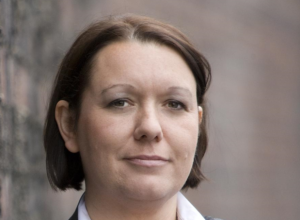
Brian Hunt is a dedicated crisis management professional. He holds a Bachelor of Arts in Emergency Management and has demonstrated a deep commitment to academic excellence and a solid foundation in the field. He is a lifetime member and current 2nd Vice President of the Epsilon Pi Phi (EPP) Emergency Management Honor Society. His involvement in this prestigious society reflects a dedication to upholding the highest standards in the field. In addition, Brian is also a current member of the International Association of Emergency Managers (IAEM). With an impressive 20 years of experience in Public Safety, Emergency Management, and Public Health, Brian has honed his skills through a diverse range of challenges and scenarios. His hands-on experience has equipped him with the practical knowledge needed to navigate complex crisis situations effectively.
Brian’s commitment to professional development is evident in the numerous certificates and certifications he holds from various state, federal, and private agencies. Driven by a desire to share his acquired knowledge, skills, and abilities, Brian actively seeks opportunities to contribute to the growth and preparedness of others. Whether through mentoring, training programs, or collaborative initiatives, he strives to instill a culture of resilience and preparedness far and wide. In the fast-paced and dynamic field of crisis management, Brian Hunt stands as a beacon of experience, knowledge, and dedication, making a lasting impact on the safety and well-being of communities.

Matthew Durham served as the Director of Public Affairs, Headquarters, Air Force Special Operations Command, Hurlburt Field, Florida. He was responsible for implementing and directing Public Affairs policy for AFSOC’s worldwide special operations units including 20,000 personnel, 237 aircraft, and $16 billion of assets. He was responsible for public and media questions regarding the Air Force and unconventional warfare, special reconnaissance, counter-terrorism, foreign internal defense, humanitarian assistance, psychological operations, counter-narcotics and direct action.
He brings over 35 years of professional and Air Force active duty experience, both stateside and overseas, to AFSOC. Among his assignments he was on the Pentagon Air Force press desk, chief of PA at Whiteman AFB and Eglin AFB and director of the Public Affairs Center for Excellence. While at PACE he was named Air University Field Grade Academic Instructor of the Year for 2003. He wrote, organized and was lead instructor for the Public Affairs Combat Deployment Course. He participated in Operation Uphold Democracy in Haiti and Operation Deliberate Force in Bosnia. In 2003 he deployed to Baghdad as commander of American Forces Network-Iraq. He retired from active duty and joined the AFSOC staff in 2004. In 2009/2010 he served on a seven month deployment to Afghanistan with a joint special operations group. He was named the Public Affairs Officer of the Year in 1998, 1999 and the 2010, 2012 Senior Public Affairs Civilian of the Year for the Air Force.

Federico Vázquez is a political scientist who is interested both in the political nature of the formation of risk perceptions, in terms of their power dynamics, processes where social, political, cultural, and psychological factors interact, and in their political relevance, that is, their influence on collective responses (behaviors, decision making, collective actions, institutional or policy responses) and their consequences for people’s daily lives, functioning and well-being of their societies.
He is currently an official – National Consultant – of the Pan American and World Health Organization (PAHO / WHO) in the area of health promotion policy and determinants of health. During the Covid-19 pandemic health emergency, he has been responsible for developing a special initiative for analysis and management of public risk perceptions and risk communication strategies, as well as liaison with the United Nations system and international cooperation.
Also, he dedicates part of his professional and intellectual activity to the creation of a policy-oriented Lab to promote a practical approach for thinking and working politically on perceptions of risks, through creative ways of doing political analysis and designing strategies for changing or managing perceptions that can impact on better responses (decisions, behaviours, policies, collective actions) that impact different facets of individual and collective well-being.

Megan completed her Bachelors of Communications in Public Relations from Mount Royal University in April 2020. She has a variety of communications experience, working mostly with non-profit organizations. Most recently, through her student work term, Megan gained experience in assisting with exercise design, emergency response training through facilitating tabletop and functional exercises and emergency response planning. In addition to her degree, Megan holds ICS 100 and 200 from the Alberta Emergency Management Agency as well as certificates from FEMA, which include Fundamentals of Emergency Management and Introduction to Exercises. Megan is currently completing her Master’s Degree in Disaster and Emergency Management

With over 25 years’ experience in the corporate sector, Shafiq has garnered extensive experience in crisis, issues, and reputational risk management. He has worked with clients on crisis planning and preparedness, crisis and earned media training, crisis communications strategy and execution, reputation recovery, real-time hands-on and virtual situation room support, cybersecurity issues and threats, business continuity, as well as disaster preparedness and recovery.

Amanda a senior associate with the Centre for Crisis & Risk Communications. She is also the director of the crisis communication consultancy, Amanda Coleman Communication Ltd. She is based in the United Kingdom and has extensive experience in emergency services communication and leading law enforcement communication at a time of crisis. In 2017, Amanda led the law enforcement communication response to dealing with the Manchester Arena terrorist attack. She has more than two decades of experience in managing crises. She is the author of Crisis Communication Strategies published by Kogan Page in May 2020. It brings together advice for preparing for a crisis, dealing with it and moving effectively into the recovery phase. Amanda has worked as a journalist and is a Chartered PR Practitioner as well as a Fellow of both the Chartered Institute of Public Relations and the Public Relations and Communication Association. She is an international speaker on crisis communication.

Tim is a seasoned crisis communicator and public engagement professional who excels in difficult and high-pressure work. Having worked in marketing, communications, graphic layout, web, and social media throughout his 22-year career, he has focused on public engagement and crisis communications over the last decade. He is considered one of Canada’s leading crisis and disaster communications experts for remote, rural and small-urban populations. He has led communications and/or engagement in some of Canada’s largest emergencies, including in health care’s COVID-19, 2013’s southern Alberta floods and both record-setting British Columbia wildfire seasons in 2017 and 2018. Tim received the prestigious Shield of Public Service Award from the Canadian Public Relations Society for his exemplary efforts during and after the 2017 wildfires.

Diana is a versatile communications professional with over twenty-five years of international public relations experience at major PR agencies and corporations where she managed global corporate communications programs, campaigns and product launches. Diana As Head of Communications for British Airways, North America, one of the world’s largest international airlines, she was responsible for overseeing corporate communications for the airline’s most important market during one of the industry’s most challenging periods, pre and post- 9/11. At BA, Diana managed worldwide campaigns including Concorde’s Farewell Tour in North America, culminating in the worldwide press conference from New York’s John F. Kennedy Airport the morning of the final flight. The event garnered front-page coverage across the continent, and was viewed in over 180 countries by more than half a billion people.

Jeff Angel has an extensive background in crisis communications, corporate communications, public relations, stakeholder engagement, marketing and brand positioning.He has held a number of executive positions in his career including Senior Vice President Communications, The Americas, for British Airways, where he was responsible for the North American crisis response to the crash of Concorde and the subsequent relaunch and international press conference at New York’s John F. Kennedy airport, viewed by over 500 million people worldwide.
He has worked with various Fortune 500 companies including; Westjet, Canadian Airlines, Trans Canada, Enbridge, Shell, 3M, the Edmonton Oilers and also with various levels of governments.

Suzanne is a driven and passionate communications professional with a strong history of community leadership, advocacy, and non-profit work. Suzanne studied psychology at UVIC and UBC, and graduated with her Master’s of Professional Communication from Royal Roads University in May 2022.
As an Associate, at the Centre for Crisis Communications, she has supported several clients including the City of Saskatoon and the City of Merritt. She is Associate Faculty at Royal Roads University as a Teaching Assistant in the Master of Arts in Disaster and Emergency Management.
She is an ardent believer in the importance of clear, concise communication, especially in times of crisis, and values honing her craft in the service of others.
